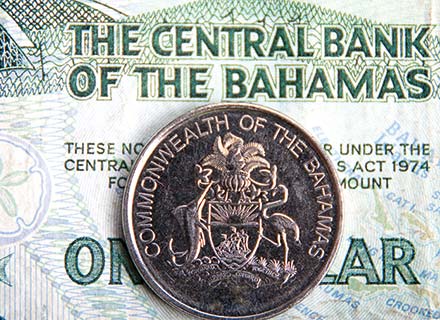Last year, The Central Bank of The Bahamas announced the Project Sand Dollar to accelerate a landmark initiative to digitise the Caribbean nation’s fiat currency. The initiative is especially important for the family of islands across the archipelago because several commercial banks in the region have downsized and become isolated from their communities. These developments have affected economic growth in the region.
The Central Bank collaborated with and Zynesis, a technology-focused blockchain consultancy, to design and implement the state-backed digital currency using blockchain. Also in an attempt to heighten focus on the initiative, The Central Bank recently hosted a blockchain seminar: Blockchain and The Bahamas: Raising the Bar.
Damian Blackburn, Chief Aliv Officer at Aliv, the new Bahamas telephone operator, represented both Cable Bahamas and Aliv at the seminar, said that Aliv will accept Project Sand Dollar payments from the first day of its launch. “The speed of everybody adopting it is crucial. I encourage all corporate entities and governments alike to consider receiving money in Sand Dollars from day one, as I have just announced on behalf of the Cable Bahamas group.”
At its core, the evolving Bahamian payments infrastructure will lower service delivery costs, increase transactional efficiency, and improve the overall financial system in the communities. So, it is crucial that the Bahamas telecommunications companies and banks interact closely with solution providers, remittance providers, and emerging companies to make that happen. If this project is correctly implemented by them all, ‘the residents will have equal, expanded access to modernised digital payments capabilities and they might even benefit from a concurrent reduction in cash transactions,’ the Central Bank said.
For the past many years, the nation’s government, bankers, and political leaders have made efforts to clean up and protect the financial system but that hasn’t worked. Although the local financial bodies regard the Bahamas as ‘one of the world’s principal international financial centres’ its money laundering problems still remain unchanged. One proof for that is that international anti-crime bodies such as the US State Department and Financial Action Task Force have identified some of the banks and offshore companies in the Bahamas as being associated with cases of massive crime and corruption. But an even damning indictment is that a draft risk assessment executed by the Bahamas authorities confirmed the possibility of money laundering in their domestic private banking and trust company sectors.
Against this background, the suggested change will be positive for reasons beyond modernising the payments infrastructure. It shows that the Bahamas authorities have started to claw back against some of the destructive financial activities that previously seemed difficult to resolve.
The other benefit of the Sand Dollar is in fighting financial crime. Deputy Prime Minister and Minister of Finance K Peter Turnquest, said, “Using technology and single points of contact, we’re able to eliminate a lot of the human element that facilitates corruption.” And in the case of applying for government services, there is ‘a single portal for entry’ through which all processes will be carried out. This can prevent circumstances that require to ‘tip’ somebody for service delivery, as the Bahamians call it.
When combined with appropriate policy and legislative reforms, the initiative might help reinforce the benefits of digital currency for the Bahamas.
“Even though it is at a very preliminary form, the government is looking to see other ways in which certificates such as business licenses, passports, and national insurance that require effective security measures can make use of blockchain technology to enable people to maintain their data and share it in a secure and verifiable way,” Turnquest said. The Central Bank has said that Sand Dollar will comply with local regulations which also includes the draft regulatory Central Bank of the Bahamas Bill, 2019. This means, the initiative might also work against financial corruption, such as money laundering and terror financing.

